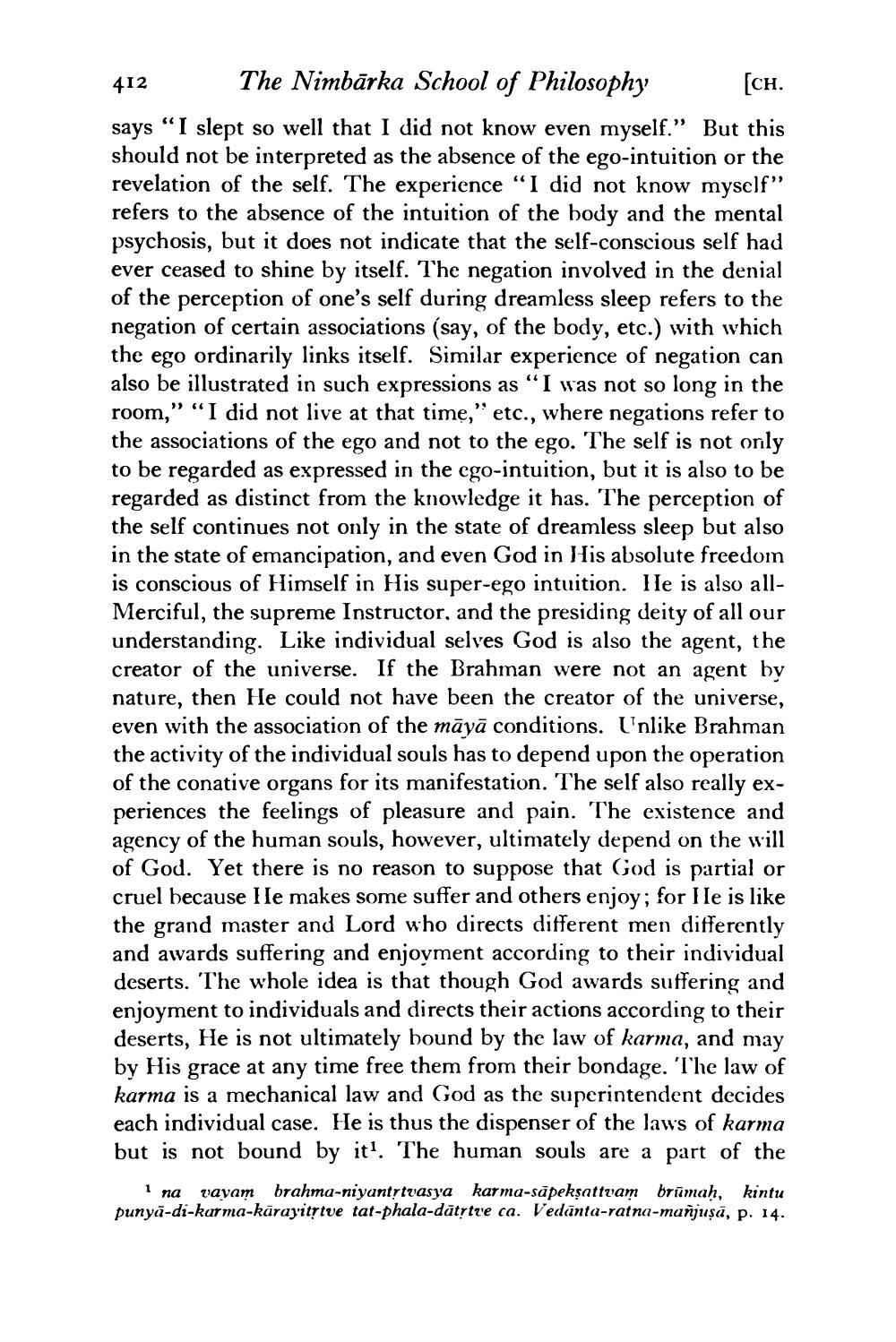________________
The Nimbarka School of Philosophy
[CH.
says "I slept so well that I did not know even myself." But this should not be interpreted as the absence of the ego-intuition or the revelation of the self. The experience "I did not know myself" refers to the absence of the intuition of the body and the mental psychosis, but it does not indicate that the self-conscious self had ever ceased to shine by itself. The negation involved in the denial of the perception of one's self during dreamless sleep refers to the negation of certain associations (say, of the body, etc.) with which the ego ordinarily links itself. Similar experience of negation can also be illustrated in such expressions as "I was not so long in the room," "I did not live at that time," etc., where negations refer to the associations of the ego and not to the ego. The self is not only to be regarded as expressed in the ego-intuition, but it is also to be regarded as distinct from the knowledge it has. The perception of the self continues not only in the state of dreamless sleep but also in the state of emancipation, and even God in His absolute freedom is conscious of Himself in His super-ego intuition. He is also allMerciful, the supreme Instructor, and the presiding deity of all our understanding. Like individual selves God is also the agent, the creator of the universe. If the Brahman were not an agent by nature, then He could not have been the creator of the universe, even with the association of the māyā conditions. Unlike Brahman the activity of the individual souls has to depend upon the operation of the conative organs for its manifestation. The self also really experiences the feelings of pleasure and pain. The existence and agency of the human souls, however, ultimately depend on the will of God. Yet there is no reason to suppose that God is partial or cruel because He makes some suffer and others enjoy; for He is like the grand master and Lord who directs different men differently and awards suffering and enjoyment according to their individual deserts. The whole idea is that though God awards suffering and enjoyment to individuals and directs their actions according to their deserts, He is not ultimately bound by the law of karma, and may by His grace at any time free them from their bondage. The law of karma is a mechanical law and God as the superintendent decides each individual case. He is thus the dispenser of the laws of karma but is not bound by it'. The human souls are a part of the
412
na vayam brahma-niyantṛtvasya karma-sāpekṣattvam brūmaḥ, kintu punya-di-karma-kārayitṛtve tat-phala-dātṛtre ca. Vedanta-ratna-manjuṣā, p. 14.
1




